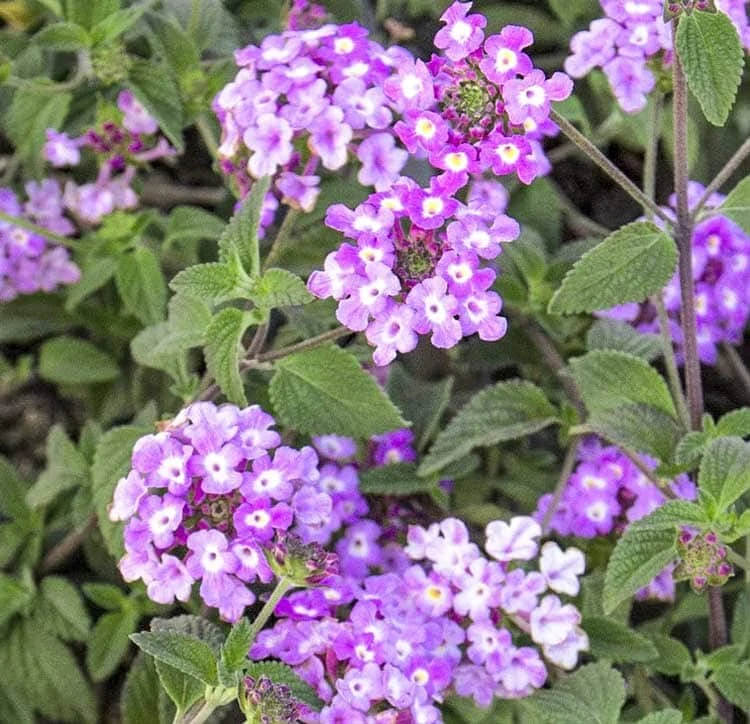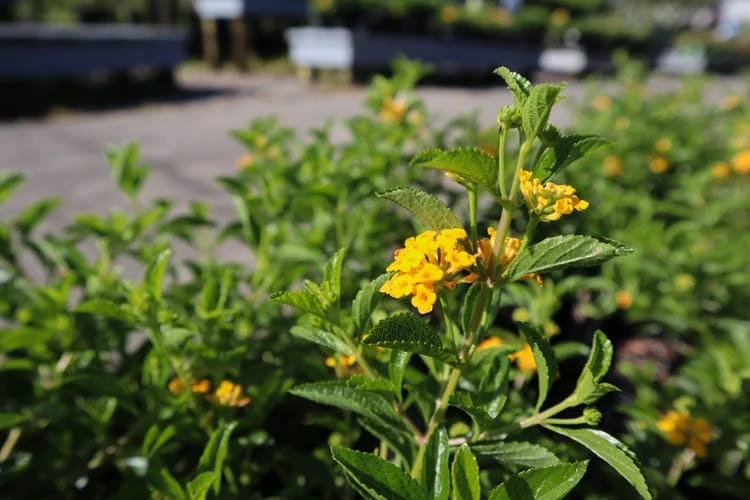by Amanda Rose Newton
Lantana has long been loved by butterfly enthusiasts for its ability to attract a wide assortment of pollinators with its bright colors and easy-to-access nectar.

While it may seem obvious that it is native to the state of Florida (there is a town called Lantana, after all), it’s not as clear-cut as one might think. In fact, lantana leads an interesting double life in our state, taking on a Dr. Jekyll and Mr. Hyde vibe straight out of a novel or soap opera.
Native Florida Lantana
Our native species, Lantana involucrata and Lantana depressa, look foreign compared to what is on the market now. The non-native Lantana camara, which has showier foliage, is a category 1 invasive and will take over natural areas if left unchecked.
When a plant achieves category 1 status, it means it thrives in our natural environment, is toxic to other species, produces chemicals that deter other plants from growing, is spread easily by seed, grows well in poor soil, and regrows post-removal.
In the case of Lantana camara, it is capable of all the above. The tale takes a seriously dark turn if the native and invasive cross paths. They can hybridize, which could lead to a loss of genetic diversity in our natural ecosystem. Luckily, most of the lantana that makes its way to the plant nursery market today is sterile, meaning it will not have the opportunity to hybridize with our natives or any other plant, for that matter.
Buttonsage- The REAL Deal!

If you are interested in growing our understated native, it often goes by the name Button sage, referring to its clusters of small fragrant flowers ranging from white to lavender. The foliage is especially pretty, with toothed leaves that give off an aromatic odor when crushed. It is found from the Panhandle to the Keys and does excellent in well-drained, sandy soils. At 3-5’ tall and spreading anywhere from 1-5’ it’s not as robust as the ornamental version, but just as attractive to butterflies and bees.
In addition to these stellar qualities, Button Sage is salt tolerant and can withstand long periods of drought, making it an excellent choice no matter where you are in the county.
Lantana depressa- Native Pineland Shrub Lantana

Pineland shrub lantana is for those who want something with a little “oomph”! The bright yellow is like coloration you would see in the commercially available cultivars but has all the benefits of being a true Floridian.
It takes on a more trailing habit than what is seen in the Button sage, and is usually the easiest way to distinguish it from the more common upright ornamental version. It blooms most of the year, does well in all soil types, is salt tolerant, and only gets about 2 feet in height.
Native to the Miami region, it performs well statewide. It does spread, but usually within a 5-foot radius. Unfortunately, this is the most likely of the natives to hybridize with the non-native L. camara, and there is growing concern over protecting it so we do not lose this lovely plant.
If you are looking to add more natives to your butterfly garden, consider lantana and when possible, plant native! Here at Rockledge Gardens, we offer both Lantana depressa and the Lantana involucrata, as well as many other natives loved by butterflies just waiting to be planted in your landscape.


